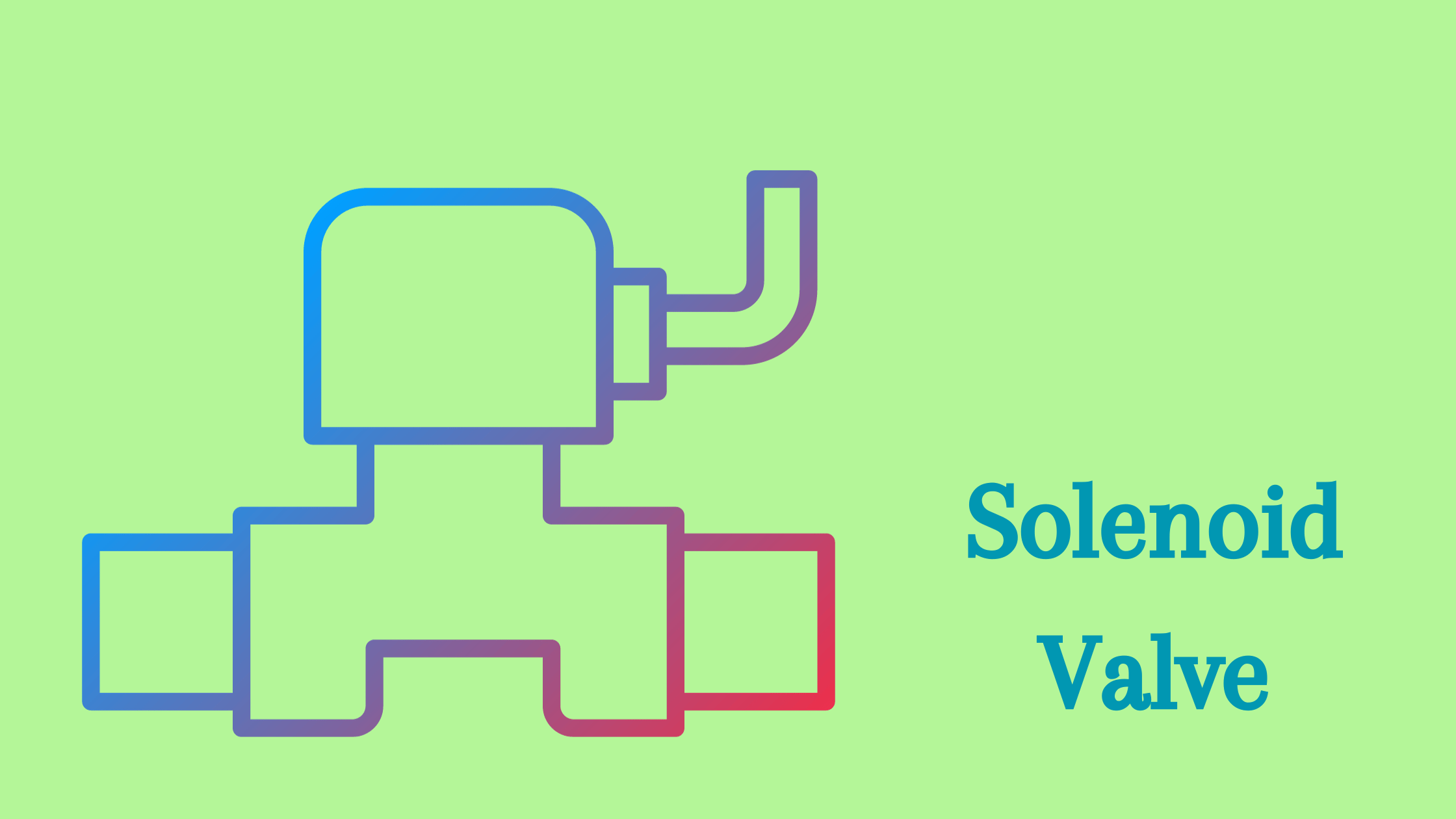
Solenoid valves are electromechanical devices that play a critical role in controlling the flow of fluids or gases in a wide range of applications. They operate by using an electromagnetic coil to actuate a plunger, which, in turn, opens or closes a valve mechanism. This fundamental principle of operation allows for precise and rapid fluid flow control.
Significance of Solenoid Valves in Various Industries
The versatility and reliability of solenoid valves make them indispensable components in numerous industries. Whether it’s managing the flow of water, gases, or various liquids, solenoid valves ensure the efficient and automated control of processes. From manufacturing and oil and gas exploration to medical equipment and everyday appliances, solenoid valves find applications that enhance convenience, safety, and efficiency.
In this comprehensive guide, we will explore the diverse array of industries and applications where solenoid valves are used, highlighting their crucial role in modern industrial and consumer contexts.
Industrial Applications
Solenoid valves are vital components in a wide range of industrial applications, where precise control of fluid flow is essential for efficient operations. Here are some key industrial sectors where solenoid valves are commonly used:
Manufacturing and Automation
In manufacturing processes, solenoid valves play a critical role in controlling the flow of various liquids and gases. They are employed in automated systems for tasks like material handling, packaging, and quality control.
Oil and Gas Industry
The oil and gas sector relies on solenoid valves for critical functions such as wellhead control, pipeline management, and safety systems. Solenoid valves help regulate the flow of oil, gas, and chemicals in this demanding industry.
Chemical and Pharmaceutical Sector
Solenoid valves are used extensively in chemical and pharmaceutical manufacturing for accurate dosing, mixing, and dispensing of chemicals. They ensure precise control in processes involving hazardous or sensitive substances.
Food and Beverage Processing
In the food and beverage industry, solenoid valves are employed for tasks like ingredient dispensing, bottling, and packaging. They meet strict hygiene and quality standards required in food production.
HVAC and Building Automation
Heating, ventilation, and air conditioning (HVAC) systems utilize solenoid valves to control the flow of refrigerants and maintain temperature and humidity levels in buildings. Building automation systems also benefit from their use.
Water and Wastewater Management
Solenoid valves are integral to water and wastewater treatment plants. They are used for tasks such as controlling the flow of fresh water, managing sewage, and ensuring the efficient operation of pumps and filtration systems.
These applications showcase the versatility and reliability of solenoid valves in various industrial contexts.
Commercial and Consumer Applications
Beyond industrial use, solenoid valves find application in a variety of commercial and consumer sectors, contributing to convenience, efficiency, and safety. Here are notable areas where solenoid valves are commonly employed:
Home Appliances
Solenoid valves are integral components in numerous home appliances, including washing machines, dishwashers, and refrigerators. They control the flow of water, detergent, and refrigerants, ensuring these appliances operate effectively.
Automotive Systems
In the automotive industry, solenoid valves are used in various systems such as transmission controls, fuel injection, and emission control. They play a crucial role in optimizing engine performance and reducing emissions.
Medical Equipment
Medical devices and equipment often rely on solenoid valves for precision fluid control. They are found in devices like infusion pumps, dental instruments, and diagnostic equipment, ensuring accurate and safe operation.
Entertainment and Gaming
Solenoid valves contribute to the realism and interactivity of entertainment and gaming experiences. They are used in pinball machines, amusement park rides, and gaming consoles to create tactile feedback and dynamic effects.
The versatility of solenoid valves extends into these commercial and consumer domains, enhancing functionality and user experiences.
Specialized and Emerging Uses
Solenoid valves have evolved to cater to specialized and emerging applications, where precise fluid control and automation are crucial. Here are some noteworthy domains where solenoid valves are finding new roles:
Aerospace and Aviation
In the aerospace and aviation sectors, solenoid valves are employed for various critical functions, such as fuel control, landing gear actuation, and hydraulic systems. They play a pivotal role in ensuring the safety and reliability of aircraft systems.
Renewable Energy
Solenoid valves are integrated into renewable energy systems like solar and wind power plants. They are used for hydraulic control, coolant circulation, and lubrication in wind turbines and solar tracking systems, contributing to energy efficiency.
Agriculture and Irrigation
Modern agriculture relies on automation and precision. Solenoid valves are used in irrigation systems to manage the flow of water to fields and crops efficiently. They enable remote control and scheduling, conserving water resources.
3D Printing and Additive Manufacturing
The additive manufacturing industry, including 3D printing, utilizes solenoid valves in extrusion systems. These valves control the precise release of materials, like polymers and metals, layer by layer, ensuring accurate and high-quality printed objects.
As technology advances and industries continue to automate and innovate, solenoid valves adapt and find new applications in diverse sectors.
In summary, solenoid valves have proven to be versatile components with a multitude of applications across various industries and sectors. Their ability to provide precise and rapid fluid control has made them indispensable in modern life. Let’s recap their diverse range of applications:
Recap of Diverse Solenoid Valve Applications
Throughout this article, we’ve explored how solenoid valves are utilized in:
Industrial Applications: Manufacturing, oil and gas, chemical, food and beverage, HVAC, and water management.
Commercial and Consumer Uses: Home appliances, automotive systems, medical equipment, and entertainment.
Specialized and Emerging Fields: Aerospace, renewable energy, agriculture, and 3D printing.
The Pervasive Role of Solenoid Valves in Modern Life
From powering critical processes in industrial settings to enhancing convenience in our daily lives, solenoid valves play a pervasive role. They contribute to efficiency, precision, and automation across a wide spectrum of applications, ensuring that processes run smoothly and safely.
As technology advances and industries continue to evolve, solenoid valves will undoubtedly find new and innovative applications, further solidifying their position as fundamental components in modern engineering and automation.